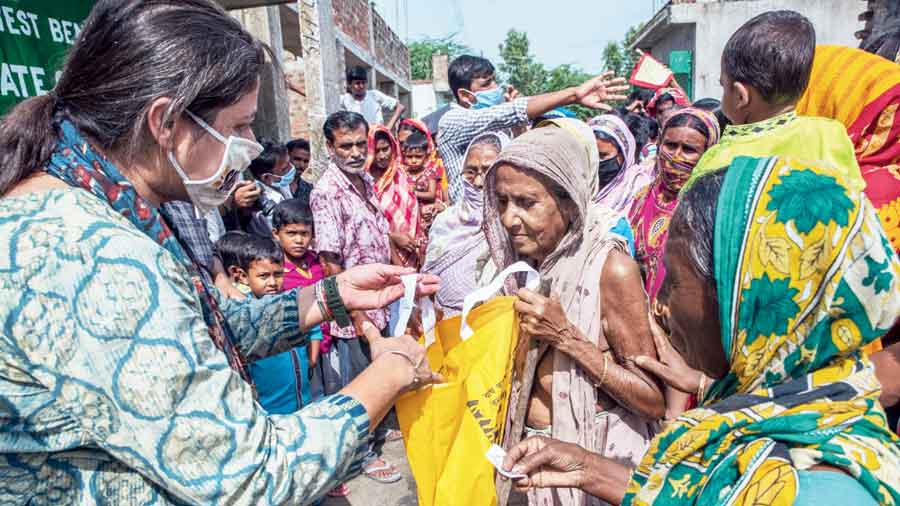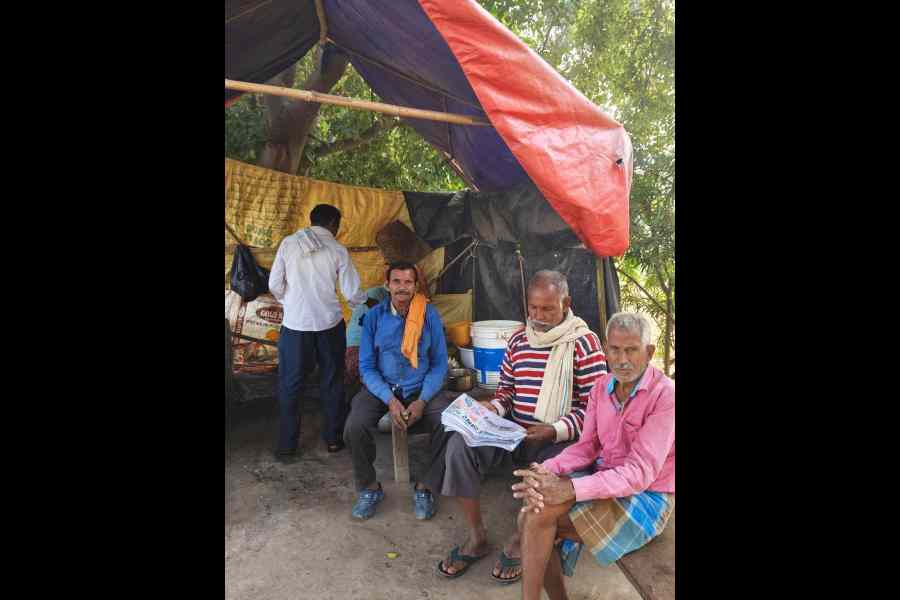Over 2,500 children and women living in areas prone to human-animal conflict will get a new set of clothes in the run-up to the festive season.
The areas are Dakshin Shole in West Midnapore, human settlements around the Narayanpur forest in Hooghly and Kumirmari village in the Sunderbans.
Dakshin Shole village in Salboni, around 21km from Midnapore town, is a hotbed of human-elephant conflict. Herds of marauding Dalma elephants raid the village frequently, destroying crops.
People living in tribal hamlets around the Narayanpur forest, 25km from Singur, have been accused of hunting monitor lizards, fishing and civet cats, birds and other animals that are found in the forest.
Kumirmari village, in the Basirhat range of the Sunderban Tiger Reserve, derives its name from crocodile. Man-wild conflict in the mangroves needs no introduction. The loss of livelihood because of the pandemic has forced many people living on the fringes to enter the forests for fishing and collecting firewood. More than 15 people have been killed in tiger attacks in the Sunderbans this year, according to official estimates.
Thousands of workers returned to the Sunderbans from various cities in the wake of the lockdown. Many of them depended on farming and fishing for survival but Cyclone Amphan inundated vast swathes of farmlands and waterbodies with salt water.
The distribution of new clothes is an attempt at inclusive conservation management, said Joydip Kundu of the Society for Heritage & Ecological Research (SHER), an NGO that works to reduce human-wildlife conflict and is behind the project.
“The aim is to win the trust of the local population. We are trying to make them part of the festivities. In return, we expect them to be part of our conservation efforts,” said Kundu.
The project is in its fifth year, he said.
The drive is being conducted in collaboration with the forest department in phases.
Around 2,400 people, including children, have got new clothes till Friday.
The list of recipients was prepared with the help of the joint forest management committees.
“The people of the Sunderbans have suffered a lot because of the Covid-19 pandemic and Amphan. They are yet to recover from the twin blows. We want to make these marginalised people a part of the festive celebrations,” said Tapas Das, the field director of the Sunderban Tiger Reserve, who was part of the distribution campaigns.
“We want to engage with children in one way or another. If we can catch them young, they can be the agents of the change we seek.”
In the past, people living on forest fringes were brought to the city and taken to pandals by SHER.
This year it won’t be possible because of the pandemic.










